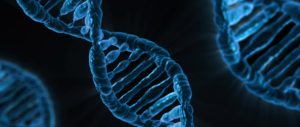
Medical researchers have discovered that a genetic mutation may be responsible for why some people who test positive for COVID-19 do not develop symptoms, while the disease proves to range between mildly debilitating and downright lethal to others. This mutation, one responsible for regulation of the immune system, appears to provide a pre-existing immunity to the disease that enables the subjects’ immune systems to fight of their SARS-CoV-2 infections fast enough to prevent any appreciable symptoms from arising in the first place.
The study, conducted by researchers at the University of California and the National Marrow Donor Program (NMDP), involved 21,893 individuals that were registered with the NMDP; as the HLA gene appears to play a role in organ transplant rejection the NMDP has compiled a database of high-resolution maps for the genes of these subjects.
1,428 unvaccinated individuals that had tested positive for COVID-19 had been singled out from this group, with 26 percent of the group reporting that their infection resulted in a case that was symptomatic, while the other 76 percent reported having only mild to no symptoms.
The study found that 20 percent of the asymptomatic individuals had a mutation in their human leukocyte antigen (HLA) gene, a portion of our genetic code that regulates our immune system, catalogued as HLA-B*15:01, while only nine percent of those reporting symptoms had this genetic variation; after the numbers were run, the team found that individuals with the presence of two copies of the HLA-B*15:01 were eight times as likely to be asymptomatic than those without the mutation.
What this HLA mutation seems to be doing in regards to COVID-19 is that it has stored an immune response from a previous coronavirus infection, such as the individual having caught the common cold; this prior infection can provide the immune system with antibodies and T-cells (a part of the immune system that actively attacks invading pathogens like the SARS-CoV-2 virus), so instead of the immune system having to take the time to develop these antiviral weapons in response to the new infection—time that can allow the infection to develop symptoms—the body is pre-armed with these defenses.
“Most of us have been exposed to some common cold coronavirus at some point in life,” explains Dr. Jill Hollenbach, an Associate Professor with the Department of Neurology at UC San Francisco.
The combination of those prior infections and the HLA mutation—plus a good dose of luck—enables the “immune response and these T cells [to] fire up much more quickly [than in a person without the HLA mutation],” according to Hollenbach. “So for lack of a better term, you basically nuke the infection before you even start to have symptoms.”
One needs to bear in mind that this mutation is not a magic bullet that provides automatic immunity to COVID, as not everyone who has the HLA-B*15:01 variant is able to evade the disease—remember, nine percent of the symptomatic test subjects had the mutation—and there are definitely other factors that contribute to being able to ward off COVID-19, as the mutation only appeared in about 20 percent of the asymptomatic subjects.
Additionally, whether or not you carry this HLA mutation boils down to sheer chance. “It’s definitely luck,” Hollenbach remarks. “But, you know, this mutation is quite common. We estimate that maybe 1 in 10 people have it. And in people who are asymptomatic, that rises to 1 in 5.”
Subscribers, to watch the subscriber version of the video, first log in then click on Dreamland Subscriber-Only Video Podcast link.
Svante Paabo, who won the Nobel Prize for Physiology and Medicine this week for sequencing Neanderthal DNA, says that susceptibility to severe COVID is carried by a Neanderthal gene. People who have the mutated gene are more likely to become very ill if they do contract COVID.